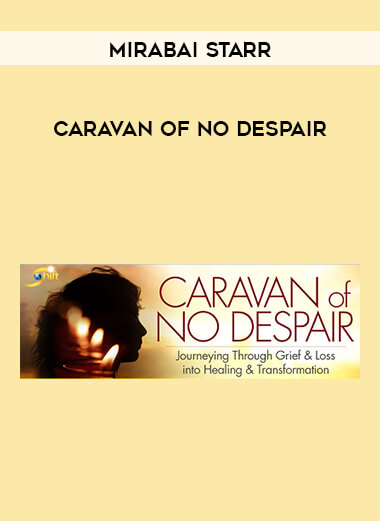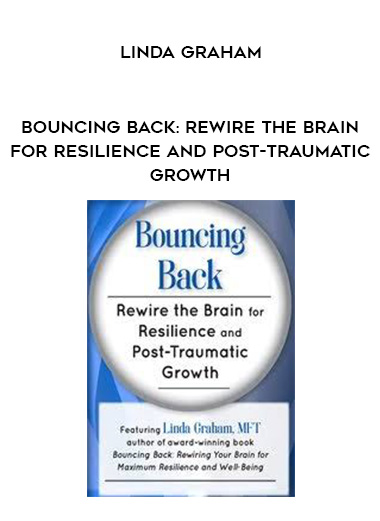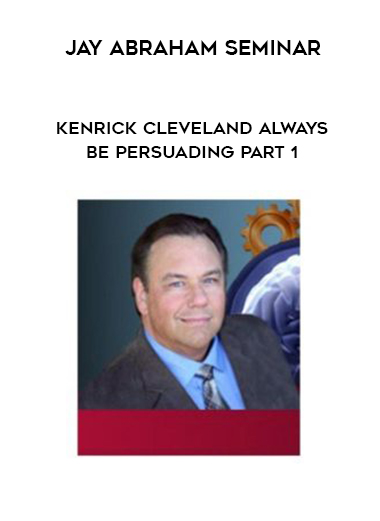Mirabai Starr – Caravan of No Despair
 Salepage : Mirabai Starr – Caravan of No Despair
Salepage : Mirabai Starr – Caravan of No Despair
Arichive : Mirabai Starr – Caravan of No Despair
What You’ll Discover in These 12 Modules
Each contemplation and teaching session will build harmoniously upon the next, so that you’ll develop a complete, holistic understanding of the practices, tools and principles you’ll need to navigate the stages of grief in a way that opens you to real spiritual transformation.
Module 1: Sitting in the Fire
Grief is a natural response to the shattering of the foundation of your life. One of the most powerful forces for radical inner transfiguration is the death of a loved one.
Yet loss takes many forms, and each can be a catalyst for awakening: the ending of a relationship and the circle of friends and family you shared, the loss of a job or career and the community that goes with it, financial security, a serious health diagnosis that reorders your self-image, infertility, innocence. Our culture has conditioned us to get away from painful things, but the world’s wisdom traditions offer us a deeper path, one that invites us to sit in the fire and allow it to transform us.
In this session, you will:
Learn somatic practices for being with strong feelings that arise as we explore our losses.
Discern between consolation and transformation.
Explore the teachings from multiple spiritual traditions that embrace the annihilating power of love.
Learn about “disenfranchised grief” and how to give yourself (and others) permission to grieve your hidden losses.
Begin to build an altar to your loved one(s) who are gone.
Module 2: Yearning for the Beloved
The 16th-century mystical genius, St. John of the Cross, coined the term “dark night of the soul” and developed a teaching that shows us how to surrender to radical unknowing and allow ourselves to be stripped of all that stands between our souls and the Divine. These and other mystics see deep sorrow as a great spiritual blessing, rather than as a problem requiring a solution.
In this session, you will:
Explore the numinous quality that infuses your losses, and access this as a portal to your connection with the Divine.
Practice contemplative reading of the poetry of the mystics as a spiritual practice.
Learn the love-language from the Song of Songs (Judaism) and the Gita Govinda (Hinduism).
Surrender the impulse to mend your brokenness.
Module 3: The Landscape of Loss
Elisabeth Kübler-Ross, pioneer of the conscious dying movement, came to see that everyone grieves differently and that science collapses in the face of the mysteries of the heart. There is no map for the landscape of loss, no established itinerary, no cosmic checklist, where each item ticked off gets you closer to success. You cannot succeed in mourning your loved ones. You cannot fail. And yet there are certain common features, and knowing the signposts can help you navigate that wilderness.
In this session, you will:
Learn the classic stages of grief: Denial, Anger, Bargaining, Depression, Acceptance.
Reframe these stages as spiritual stations.
Create a timeline of your losses and look for emerging patterns.
Learn about how St. Francis of Assisi walked a path of loss and transformation.
Module 4: Denial as Grace
Denial is not inherently negative. It is, in fact, what saves us from imploding when tragedy strikes. It is a biochemical process that washes through our brains and wraps us in a protective cocoon. It can also be seen as the grace that descends when something terrible happens, the angels that rush in to hold us up as we are hurtling into the abyss. The force of loss can part the veil that separates us from the sacred and grant us fleeting yet transformational access to Reality.
In this session, you will learn to:
Yield to the altered state of consciousness that accompanies profound loss, embracing it as an opportunity to detach from the everyday world and abide in a larger field of awareness.
Affirm the power of community to respond to a loss and weave a web of support for the bereaved.
Identify the positive traits that loss draws from you (such as dignity, fearlessness, even humor).
Learn about what current research has to teach us about the effects of trauma on the brain.
Module 5: Isolation as Wisdom
When we lose someone or something we love, we have a tendency to withdraw from the world to protect our shattered hearts. We need time and space to turn inward and assess what has happened. We also may recognize that something holy is going on beneath the surface of the shock and pain, and we are reluctant to be distracted by other people and their opinions about our loss. While the desire for solitude can turn into harmful isolation, it can also be an expression of self-care, and a way of honoring the sanctity of the experience.
In this session, you will:
Make a plan to take a day of complete solitude and silence.
If you have a tendency to isolate too much, make a plan to sit with a trusted companion and tell them the full story of your loss.
Inventory both the obvious and the more subtle ways in which you check out of your experience when the feelings are intense.
Learn about Kuan Yin and Tara, and turn to them for refuge.
Module 6: Anger as Protest
Anger is a natural response when something we value is torn from us. Our whole being rises up in protest. Desperate for a place to put the fire, we may lash out and cause harm. Yet when we approach this powerful emotion with loving awareness we can claim the power of the spiritual warrior to cut through illusion and lay the truth bare. Grief may be the first time we experience the ability to set healthy boundaries!
In this session, you will:
Make a list of everyone you are mad at with regard to your loss(es).
Write a letter of protest to God (or the Divine, the Universe, whatever Higher Power you relate to).
Explore the archetype of the Spiritual Warrior across the faith spectrum.
Module 7: Bargaining as Problem-Solving
Bargaining can be one of the most vexing aspects of the grief experience. This is that phase where the monkey-mind takes over and you endlessly replay the tape of what happened, in the futile hope that you can make things come out differently. But we cannot think our way through the problem of loss. No amount of righteous indignation, self-recrimination, or wistful “if only’s” will undo reality. The relentless internal monologue can make us feel like we are going insane, but if we are patient with ourselves and remember not to believe everything we think, this process will run its natural course.
In this session, you will:
Re-write the script of what happened and create the ending you prefer.
Practice self-soothing phrases you can say to yourself when you find yourself kicking your own ass.
Learn about well-loved saints and mystics who lost their center, just like you do.
Understand that even knowing that this is a natural stage of grief does not make it magically go away.
Learn to be compassionate with yourself.
Module 8: Depression as Surrender
When all our efforts to strike a deal with the universe fail, we finally collapse, exhausted and surrender to what is. And “what is” may be really hard to bear. But at this point, there is nowhere left to turn, and so we sink into feeling our feelings at last. We get to be simply sad, without the storyline obscuring the experience. We shift from the head to the heart, and we rest there.
In this session, you will:
Learn about what the 16th-century mystic St. John of the Cross meant when he coined the term “Dark Night of the Soul.”
Identify times you feel you have experienced the “Night of Sense.”
Release the need to know and understand. Embrace the mystery.
Practice meditation on groundlessness from Pema Chödrön.
Module 9: Stripped, Shattered & Blessed
Rumi says, “The grief you cry out from draws you toward union.” And that’s not all! “Your pure sadness that wants help,” he goes on to say, “is the secret cup.” Do we dare to believe this? Many mystical traditions affirm that the moment we reach out for the Holy One there is an immediate — almost quantum — response. The Beloved longs for us as fervently as we long for the Beloved. The human/Divine relationship is a reciprocal one. The fire of separation burns the boundaries between our souls and our source so that we can reclaim the power of desire.
In this session, you will:
Read key passages from John of the Cross on the blessing of the Dark Night.
Identify times you feel you have experienced the “Night of Spirit.”
Explore the connection between personal loss and longing for the Divine.
Learn about other mystical traditions that affirm the necessity of transcending the limitations of the intellect.
Module 10: Acceptance as Integration
Acceptance is not light at the end of the tunnel that signals your grief journey is over. It’s not about glossing over the power of your experience. What happened may never be okay with you, and that’s okay! It is a matter of looking at your loss face to face. It involves taking yourself into your arms and forgiving yourself for being unable to make things be other than they are. The loss may be amputation and that limb may never grow back, but we learn to find a new center of gravity.
In this session, you will:
Identify the ways in which you have integrated what happened into the fullness of your life.
Notice where you still feel fragmented and split off, and set your intention to reclaim your wholeness.
Learn about saints and mystics who have lived with profound loss.
Module 11: Relocation
Once we have come to accept that who and what we loved in physical form is really gone, we are free to cultivate a new, metaphysical relationship. This does not happen all at once, and it is not subject to our ideas about it. Our connection unfolds organically, often quietly, and our task is to grow still enough to recognize the fruits of this love as they ripen and drop into our hands.
In this session, you will:
Participate in a guided meditation to access your loved one(s) beyond physical form.
Write a love letter to someone you have lost, from a place of renewed connection.
Harness the power of your loss to move you more fully into life.
Learn about Julian of Norwich and her vision of Christ-the-Mother.
Module 12: This Beautiful Wound
Teresa of Avila spoke about her longing for union with the Beloved as a “beautiful wound” that seared her soul, and yet from which she would never wish to recover. This burning yearning blessed her life. In this age of spiritual cynicism, we are conditioned to repress the devotional impulse and deny the validity of ecstatic experiences. As we integrate our losses and embrace our life, let us reclaim the power of ecstasy as a path home to our true being. From this place of devotion to the Source of all Love, we may find the energy of the heart to help alleviate suffering in this world.
In this session, you will:
Learn about the “Transverberation” of Teresa of Avila.
Embrace the fire of grief as your connection to your loved one(s), rather than as an ailment to be cured.
Make a plan of action for one way you intend to be of service.
Compile a list of grief poems, music and films to use as a resource for yourself and others.
Complete your altar to your loved one(s)…





























Reviews
There are no reviews yet.